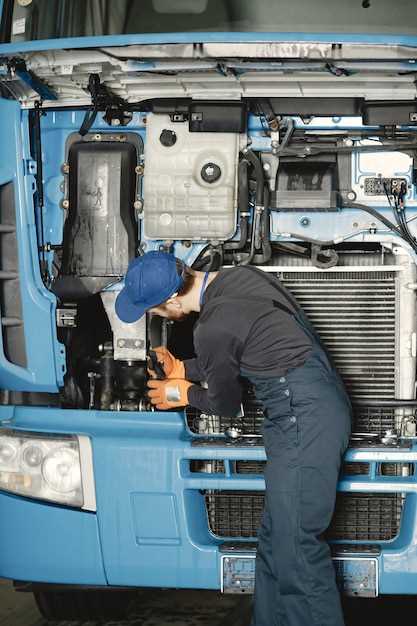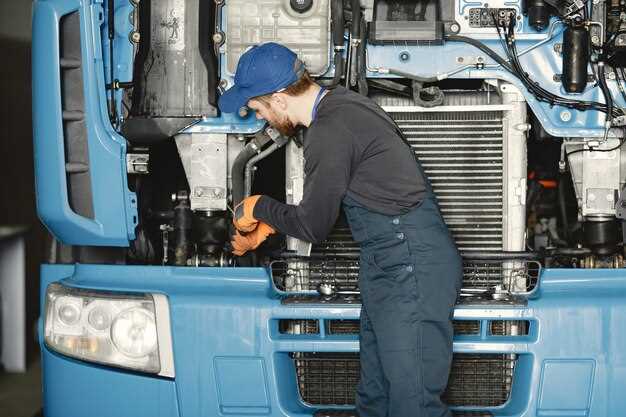
Diesel engines have become the backbone of the trucking industry, primarily due to their efficiency and reliability. The combustion process within these engines is a critical aspect that determines their performance and fuel economy. By harnessing the energy produced from highly pressurized fuel and air mixtures, diesel engines are able to deliver greater torque and withstand heavy loads, making them suitable for various applications in modern transportation.
The system complexity of a diesel engine extends beyond its primary components. It includes advanced technologies such as turbocharging, intercooling, and modern fuel injection systems, all of which contribute to enhanced combustion efficiency and reduced emissions. Understanding how these elements interact can provide valuable insights into the operation and maintenance of diesel engines, allowing for better performance management in long-haul trucking scenarios.
As environmental regulations become stricter, modern diesel engines are also evolving to incorporate cleaner technologies. This shift is crucial not just for compliance, but also for promoting sustainability in the transport sector. Insights into the functionality of diesel engines will help industry professionals adapt to these changes while ensuring optimal performance in an increasingly competitive market.
Key Components of Diesel Combustion Process
The diesel combustion process is pivotal in determining the efficiency and performance of modern trucks. Understanding its key components aids in optimizing the system for better fuel economy and lower emissions.
Fuel Injection System: At the heart of the diesel combustion process is the fuel injection system. This system precisely delivers diesel fuel into the combustion chamber under high pressure. Modern systems utilize electronic control units (ECUs) to time and meter fuel injection, enhancing combustion efficiency and responsiveness.
Air Intake System: The air intake system ensures an adequate supply of air mixed with the injected diesel. Atmospheric air is drawn into the engine, compressed, and heated, creating the ideal conditions for combustion. Turbochargers are often utilized to increase air density, leading to improved power output.
Combustion Chamber: The design of the combustion chamber significantly affects the combustion process. It is engineered to facilitate effective mixing of air and fuel while promoting efficient burn patterns. Factors such as chamber shape and volume play a crucial role in optimizing performance and emissions.
Piston and Cylinder: Within the engine, pistons compress the air-fuel mixture in the cylinder. This compression is essential for raising the temperature and pressure of the mixture, which leads to spontaneous ignition of the diesel fuel. The quality of the piston and cylinder materials also impacts durability and performance.
Ignition Delay: The diesel combustion process is characterized by an ignition delay period, the time it takes for the diesel to ignite after injection. This phase is influenced by the fuel’s cetane number, temperature, and pressure within the combustion chamber. Reducing ignition delay can lead to more complete combustion and lower emissions.
Exhaust System: The exhaust system plays a critical role post-combustion. Gases expelled from the combustion process can contain pollutants. Efficient exhaust systems, including selective catalytic reduction (SCR) and diesel particulate filters (DPF), are vital in managing emissions and meeting environmental regulations.
By focusing on these components, manufacturers can enhance the overall efficiency of the diesel system, improving the performance of modern trucks while also addressing environmental concerns.
Optimizing Diesel Fuel Systems for Performance

To enhance the efficiency and productivity of modern diesel engines, it is crucial to focus on the optimization of diesel fuel systems. This involves a comprehensive understanding of the combustion process and the role that the fuel system plays in it.
The diesel fuel system is responsible for delivering fuel to the engine in a precise and effective manner. Key components such as fuel injectors, fuel pumps, and filters must work cohesively to ensure optimal performance. Proper calibration and regular maintenance of these components can significantly influence the combustion efficiency, leading to improved power output and reduced emissions.
Improving fuel atomization is a vital aspect of optimizing the fuel system. Enhanced atomization allows for better mixing of fuel and air, resulting in more complete combustion. High-pressure fuel injectors can be employed to achieve finer fuel spray patterns, thereby maximizing the energy extracted from each drop of fuel.
Another important factor is the fuel quality itself. Utilizing high-quality diesel fuel can reduce the likelihood of injector fouling and carbon buildup, which can impede performance. Additionally, regular testing and analysis of fuel can help identify potential impurities that can negatively impact the system.
Temperature management within the fuel system also plays a critical role in performance optimization. Keeping diesel fuel at optimal temperatures ensures that it flows smoothly and maintains appropriate viscosity levels. Implementing heating elements or insulating fuel lines can mitigate cold weather issues, improving combustion efficiency in adverse conditions.
Lastly, integrating advanced engine management systems can further refine the operation of diesel fuel systems. These systems utilize electronic controls to adjust fuel delivery based on real-time engine demands, enhancing overall performance while adapting to various driving conditions.
In conclusion, optimizing diesel fuel systems involves a multifaceted approach that includes improving atomization, ensuring fuel quality, managing temperatures, and utilizing advanced technology. By focusing on these areas, fleet operators and manufacturers can enhance the combustion process, leading to increased efficiency and performance in modern trucks.
Troubleshooting Common Issues in Diesel Engines

Understanding the functionality of a diesel engine is essential for effective troubleshooting. Various challenges can arise within the system, impacting performance and efficiency. Here are some common issues and their potential solutions.
One prevalent issue is hard starting, which may be caused by weak batteries or faulty glow plugs. Checking the battery voltage and testing the glow plugs for proper operation can help resolve this problem. If these components are functioning well but the engine still struggles to start, examining the fuel system for blockages or leaks is crucial.
Another common problem is excessive black smoke from the exhaust. This usually indicates incomplete combustion due to an overly rich fuel mixture. Solutions include checking the air intake system for obstructions, ensuring that the fuel injectors are not clogged, and verifying that the turbocharger is operating correctly. Adjusting the fuel pressure regulator can also improve air-fuel mixture balance.
Engine overheating is a serious issue that can lead to severe damage. Common causes include insufficient coolant levels, a malfunctioning thermostat, or a failing water pump. Regularly inspecting the cooling system and ensuring proper maintenance can prevent overheating. If symptoms persist, it may be necessary to flush the cooling system to remove any blockages that inhibit coolant flow.
Finally, unusual noises such as knocking or rattling may indicate mechanical problems. These sounds could result from worn engine components or improper lubrication. Performing regular oil changes and checking for metal shavings in the oil can help identify internal damage early on. If abnormal sounds continue, a thorough engine inspection is warranted to diagnose issues such as failing bearings or camshaft problems.
By acknowledging these common issues and understanding their underlying causes, diesel engine operators can better maintain their vehicles and ensure reliability on the road.




